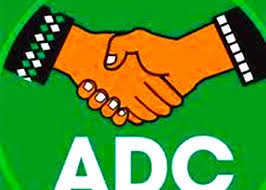In ancient Greece, education was viewed as a way to produce well-rounded citizens who could contribute to society. Education was focused on teaching students to think critically and to become well-rounded individuals.
During the Middle Ages, education was more focused on religion and preparing students for life as monks or nuns. In the Renaissance, education began to shift back towards a more well-rounded approach, with a focus on art, literature and science. Fast forward to the Industrial Revolution, and education began to focus on preparing students for the workforce and life in the modern world.
During the 20th Century, education became more focused on preparing students for the technological age. This led to the development of new subjects like computer science and technology. It also led to the development of standardized testing and the emphasis on quantifiable outcomes in education.
Today education is still constantly evolving, and there is a lot of debate about the purpose of education and how best to prepare students for the future. Many people believe that the purpose of education is to prepare students for life in the “real world” and to give them the skills and knowledge they need to be successful in life. Others believe that the purpose of education is to help students develop their creativity, critical thinking skills, and problem-solving abilities. And some people believe that the purpose of education is to help students become well-rounded individuals who can contribute to society.
Before the arrival of the British in Nigeria, education was mostly limited to Islamic education, which was available only to Muslims. When the British arrived, they introduced a more formal, Western-style education system, which was open to all Nigerians, regardless of religion.
This system of education was initially focused on training Nigerians to serve as clerks and interpreters for the British colonial government, but it eventually expanded to include a broader range of subjects and opportunities.
After Nigeria gained independence in 1960, the new government placed a great emphasis on education as a tool for nation-building. This led to the rapid expansion of the education system, which saw a significant increase in the number of schools, teachers, and students. However, the quality of education remained a major challenge.
There were also issues of access and equity, with many regions and groups being left out of the education system. Over time, the Nigerian government has made significant efforts to address these issues, and the education system has undergone several reforms.
In the early 2000s, the government launched the Universal Basic Education program, which aimed to provide free, compulsory basic education for all Nigerian children. While this program has had mixed results, it has significantly increased access to education, especially in rural areas. In addition, there have been efforts to improve the quality of education, such as the introduction of a new curriculum and the training of more teachers. However, the education system in Nigeria still faces significant challenges, including a lack of resources, poor infrastructure, and corruption.
The current state of education in Nigeria is facing several challenges. There are issues with access to education, with many children not receiving the education they need. There are also issues with the quality of education, with many schools lacking the resources and qualified teachers to provide a high-quality education. And there are also issues with funding, with many schools and education systems not receiving the funding they need to operate effectively. So there are a lot of different factors at play.
There are a few things that could be done to improve the education system in Nigeria. First, more investment is needed in education, particularly in terms of infrastructure, teacher training, and curriculum development. Second, there needs to be a focus on quality, not just access. Third, there needs to be a greater emphasis on technical and vocational education to prepare students for the world of work. Finally, there needs to be a greater focus on accountability and transparency in the education system to ensure that resources are used effectively.
Ogodo is a student of the Department of English and Literary Studies of Delta State University, Abraka


